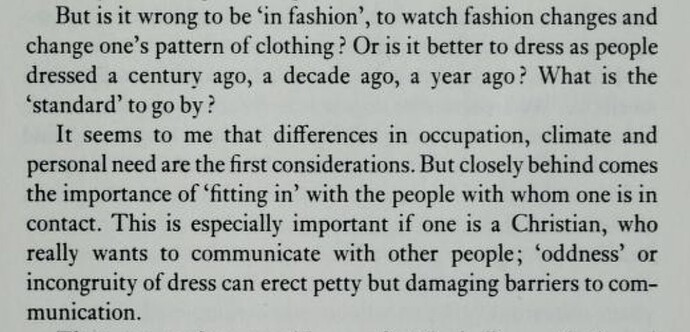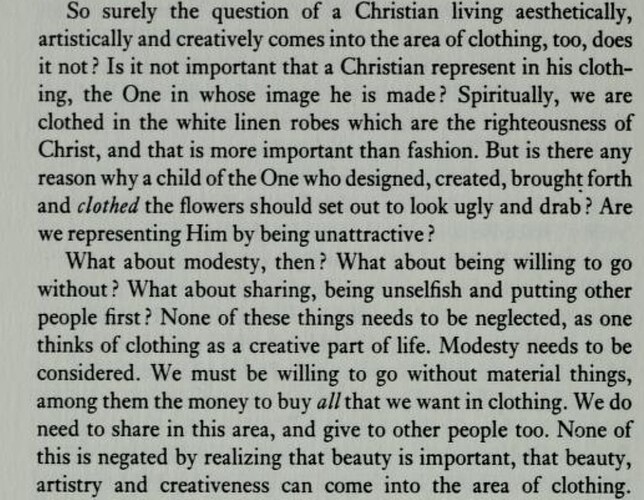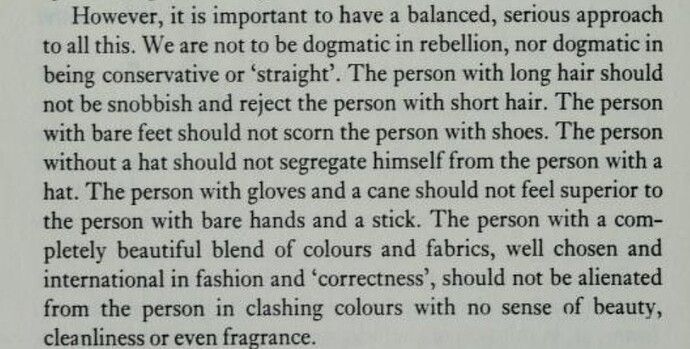Hi friends,
I’ve often thought that what matters - to God, and therefore, for us - is our hearts and our lives. To be distracted by the trivialities of clothing is a vanity. Instead of worrrying about what we wear, it’s more important to focus on how we live.
But I was challenged to reconsider this today. The daily liturgical reading included Exodus 28:36-38.
As I’ve reflected on it, this passage has helped me see an integration between my heart and my clothing.
It’s a bit of a deep dive, but here’s the point: when our hearts are devoted to holiness, this fundamental commitment to God affects what we wear.
Here’s what we read in Exodus 28:36-38,
You are to make a pure gold medallion and engrave it, like the engraving of a seal: Holy to the Lord. Fasten it to a cord of blue yarn so it can be placed on the turban; the medallion is to be on the front of the turban.It will be on Aaron’s forehead so that Aaron may bear the guilt connected with the holy offerings that the Israelites consecrate as all their holy gifts. It is always to be on his forehead, so that they may find acceptance with the Lord.
For the high priest to wear a gold medallion on his forehead with the words “Holy to the Lord”… it’s a striking, solemn requirement!
And how different this is from the peculiar trend of Christian-themed apparel that merges secular logos with faith-based messages! Morphing the Coca-Colo logo to have the words “Enjoy Jesus Christ: Thou Shalt Never Thirst” is a strange fusion of pop culture, Biblical ideas, and consumeristic fashion.
But then I started to wonder: what did God care about? A holy medallion, or a holy heart?
As we know from specific passages like 1 Samuel 16:7, God does not look at the outward appearance but at the heart.
Even more clearly, when Jesus arrived as our true high priest, the gospel writers don’t discuss his clothing very often. Rather, their focus is on his holy character and compassionate way of treating people.
As Hebrews 7:26-28 reads,
For this is the kind of high priest we need: holy, innocent, undefiled, separated from sinners, and exalted above the heavens. He doesn’t need to offer sacrifices every day, as high priests do—first for their own sins, then for those of the people. He did this once for all time when he offered himself. For the law appoints as high priests men who are weak, but the promise of the oath, which came after the law, appoints a Son, who has been perfected forever.
And the application for us, as it was for the Israelites, is the same: be holy.
As 1 Peter 1:15-16 teaches,
But as the one who called you is holy, you also are to be holy in all your conduct; for it is written, Be holy, because I am holy.
None of us are high priests in Israel. But amazingly, Jew and Gentile, men and women, we are all, by faith in Jesus, made priests of God!
Later in 1 Peter, we read,
But you are a chosen race, a royal priesthood, a holy nation, a people for his possession, so that you may proclaim the praises of the one who called you out of darkness into his marvelous light (2:9).
The consistent theme?
Aaron was to be holy. But even with a gold medallion, he failed to do so.
Jesus was to be holy. Even without a gold medallion, he was holy.
We are to be holy. But now, the words “Holy to the Lord” are written directly onto our hearts by the Holy Spirit.
As 2 Corinthians 3:3 reads, "It is clear that you are Christ’s letter, produced by us, not written with ink but with the Spirit of the living God — not on tablets of stone but on tablets of human hearts.” (See also Jeremiah 31:33).
So God’s concern is always for us to BE holy as he is holy.
Yet… still, he had Aaron wear a gold medallion to remind him of this obligation.
The biblical directive for Aaron to wear a medallion marked ‘Holy to the Lord’ was undeniably symbolic—a visual reminder of his sacred duties.
I think it’s accurate to say that this symbolism extends to us: though we are no longer under Old Testament law, a more fundamental principle remains in effect: outwardly expressing our inward holiness.
Practically, how do we choose clothing that deepens our commitment to God? Are there ways in which we uncritically reduce sacred symbols to marketing tools?
Are there ways our clothing can remind us - and others - of God’s holiness?
What do you think?


